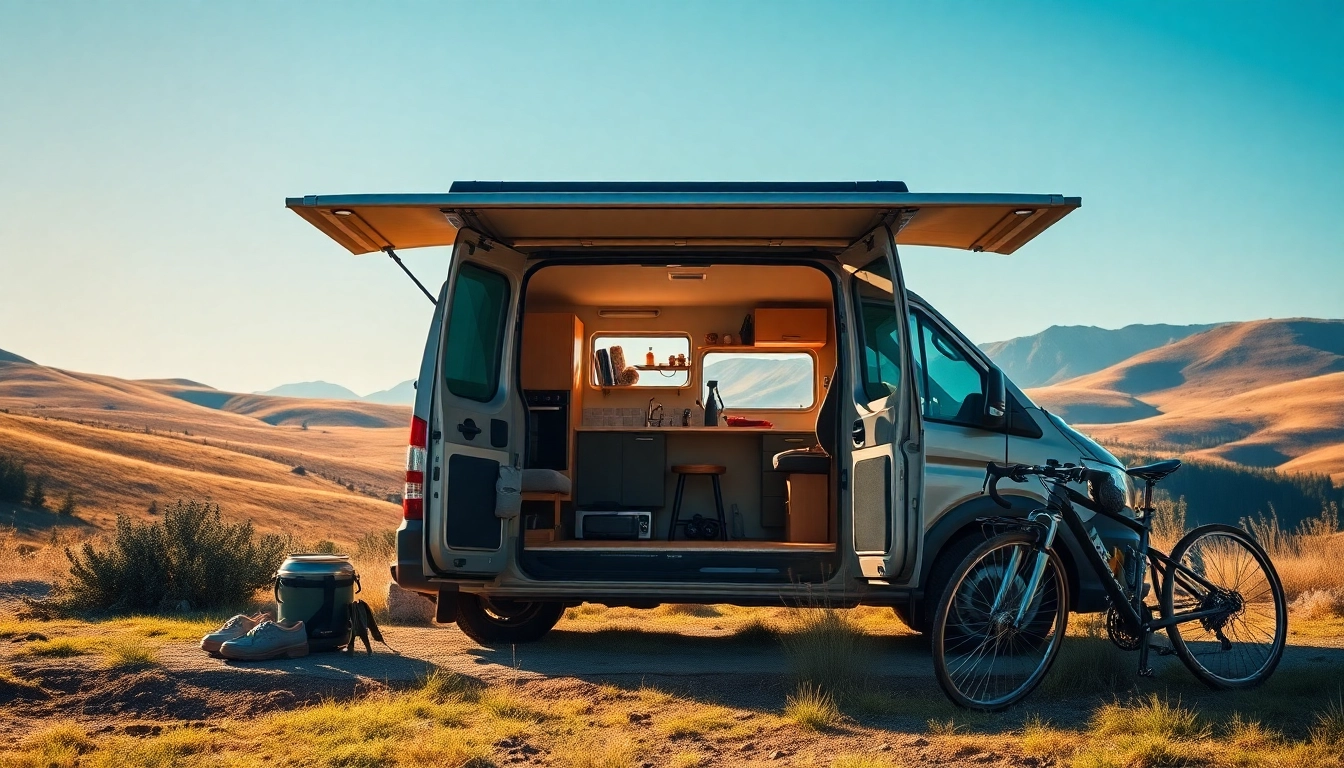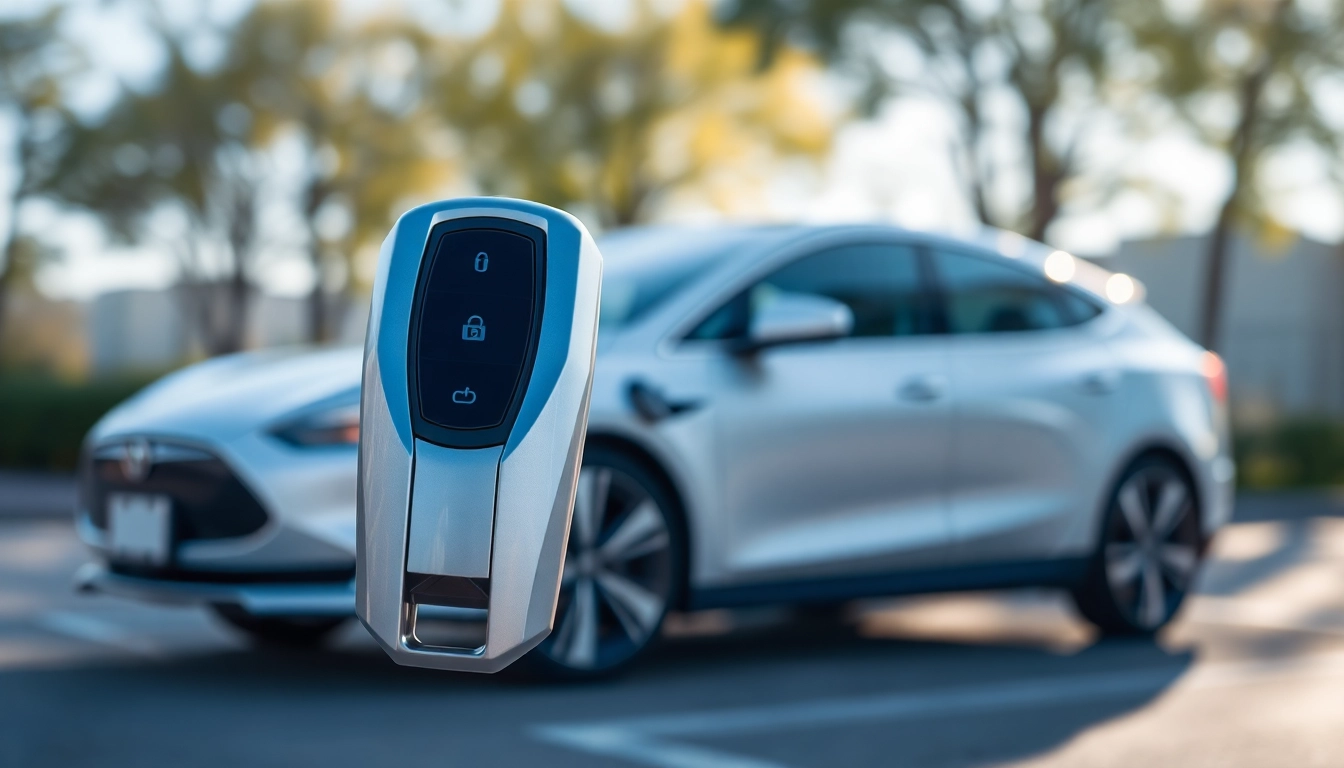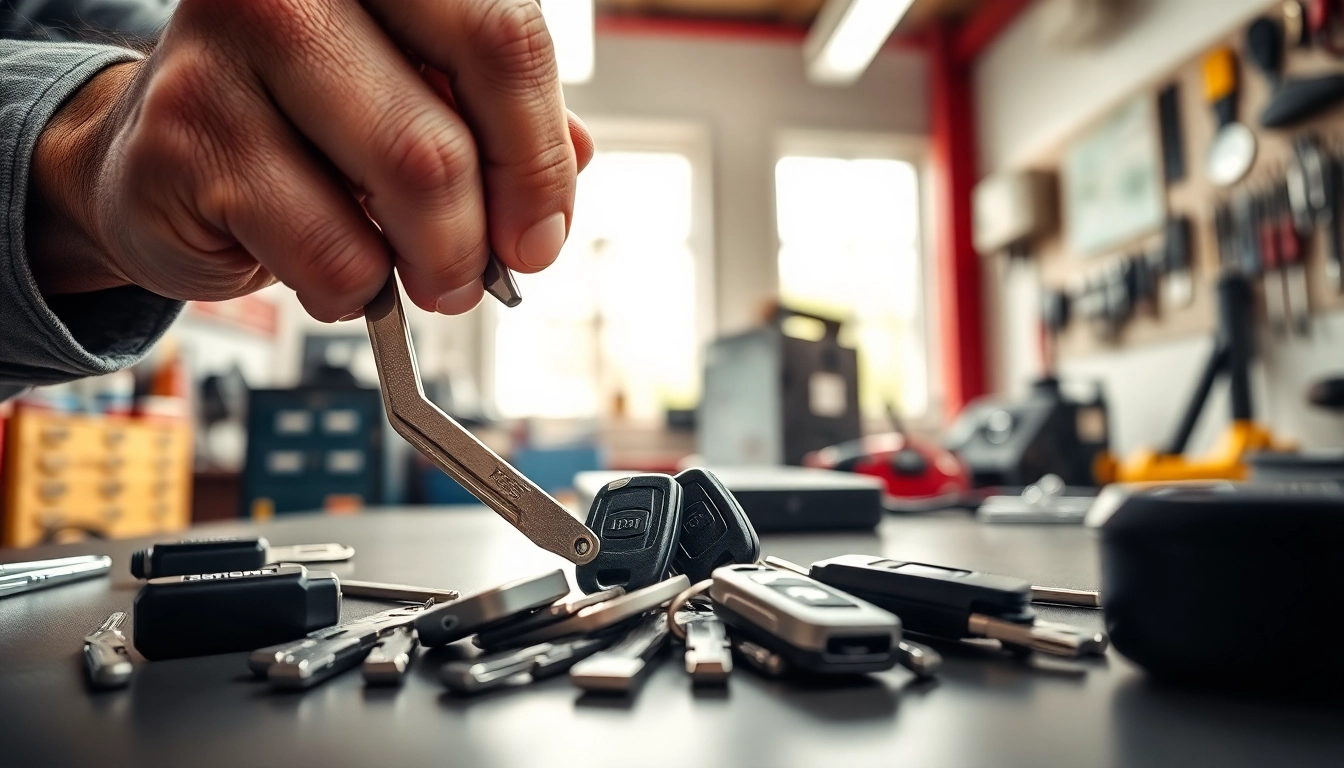
Understanding Your Needs for the Perfect Van
Choosing the perfect van begins with a clear understanding of your specific needs and lifestyle. Whether you’re planning cross-country adventures, weekend getaways, or using your van for business, taking the time to assess your requirements can ensure you select a vehicle that genuinely suits your pursuits. This process involves several key considerations—from travel requirements and space needs to budgeting.
Assessing Travel Requirements
Before you dive into models and features, ask yourself: what type of travel do I intend to do? If you’re an avid camper, your requirements might look completely different than if you use your van for urban commuting or weekend hobbies. Here are a few factors to evaluate:
- Destination Types: Will you be traversing national parks, rural areas, or just cruising through the city?
- Travel Frequency: How often do you plan to use your van? Daily commuting might require something compact compared to a larger setup for occasional trips.
- Companions: Consider how many passengers you’ll usually have. Is it just you or a family with kids and pets?
Choosing the Right Size and Layout
The size and layout of your van are crucial in creating a comfortable space for your needs. Evaluate the following:
- Seating Capacity: Different lifestyles demand different seating arrangements. A family on the go will need household-style seating, while solo travelers might stick to simpler layouts.
- Sleeping Arrangements: Consider convertible seating that turns into a bed or dedicated sleeping quarters for comfort.
- Storage: Look for options with ample storage solutions like overhead compartments or slide-out drawers for gear, which are invaluable in minimizing clutter.
Budgeting for Your Perfect Van
Finally, determining your budget is one of the most critical aspects of purchasing or converting a van:
- Initial Cost: Determine how much you can spend on the vehicle itself, factoring in new versus used options.
- Conversion Costs: If you choose a van that needs conversion, calculate the costs involved in fitting it out with essentials like a kitchen or bathroom.
- Ongoing Expenses: Don’t forget to include insurance, maintenance, and fuel. Understanding ongoing costs helps in making informed budgeting decisions.
Types of Vans: Which is the Perfect Van for You?
There are many types of vans, each catering to different needs and preferences. Understanding the distinctions can help you find the perfect model.
Camper Vans vs. Cargo Vans
At the forefront, the choice often comes down to camper vans versus cargo vans. Both have unique advantages and disadvantages:
- Camper Vans: These are modified for leisure, often outfitted with sleeping, cooking, and washing facilities. They are excellent for road trips and full-time living.
- Cargo Vans: Typically used for transportation and delivery, they have spacious interiors that can be customized based on your specific needs. They can be turned into camper vans but may require significant modifications.
Popular Models on the Market
Some popular models worth considering include:
- Mercedes-Benz Sprinter: Known for reliability and space; it’s often a favorite among travelers.
- Ford Transit: A versatile option available in multiple lengths and heights, great for conversions.
- Ram ProMaster: Offers a square shape making it easy to convert, with ample room for customization.
- Volkswagen Transporter: Renowned for its classic design and compact footprint, suitable for city driving.
Custom vs. Pre-Configured Options
When it comes to customization, you have two main paths:
- Custom Builds: Allows for personalized designs suited to your unique travel style, offering unparalleled satisfaction.
- Pre-Configured Models: These are ready-made vans that come equipped with standard features. They save money and time but may not fully cater to personal preferences.
Essential Features for the Perfect Van
Finding the perfect van also means ensuring it has essential features that enhance comfort and utility. Here are key aspects to consider:
Storage Solutions
A well-organized van often leads to a more enjoyable travel experience. Effective storage solutions can make a significant difference. Consider:
- Builtin Cabinets: These maximize space and provide safe storage for equipment.
- External Racks: Bike racks, ladder racks, and storage boxes can hold additional gear or outdoor equipment.
- Modular Furniture: Consider furniture that can be easily rearranged or removed to adapt to various needs.
Comfort and Aesthetics
A comfortable living space ensures that your time on the road stays enjoyable. Here’s what to prioritize:
- Seating Comfort: Ergonomic seats will drastically improve comfort when driving long distances.
- Interior Design: Choose materials that resonate with you. Aesthetic choices can turn a bland interior into your personal paradise.
- Climate Control: Adequate heating and cooling solutions such as air conditioning and auxiliary heaters ensure comfort in varying climates.
Energy and Utility Systems
For a self-sufficient van, focus on energy systems that will keep your devices powered and essentials functioning:
- Solar Panels: For eco-friendly energy while off-grid.
- Inverters: Convert battery power to AC for charging devices.
- Water Systems: Think about how you’ll manage fresh and wastewater for cooking and bathing scenarios.
Van Conversion: Making Your Perfect Van a Reality
Now that you’ve made choices about the van type and its features, the next step is the conversion. This can be an exciting yet daunting process.
DIY vs. Professional Conversion
A large part of the van conversion dilemma involves whether to undertake the project yourself or hire professionals:
- DIY Conversions: This is a rewarding way for those who enjoy hands-on projects. However, it requires skills in carpentry, electrical systems, and plumbing. Time and resource-intensive, careful planning is essential.
- Professional Conversions: This option provides expertise and quality. While it may come at a premium, it can save headaches by ensuring everything is done well and promptly.
Resources for Van Conversion Projects
Many resources exist to aid both DIY enthusiasts and those considering professional assistance:
- Online Communities: Engage with groups such as VanLife or RV forums for tips, inspiration, and shared knowledge.
- Workshops: Look for local seminars or classes that cover van construction basics.
- Books and Blogs: There are plenty of published guides and personal blogs detailing conversion experiences and techniques.
Common Mistakes to Avoid
To ensure a successful conversion project, it’s vital to dodge some common pitfalls:
- Lack of Planning: Failing to plan can lead to overspending and undesirable layouts.
- Ignoring Weight Limits: Too much modification can make the van unmanageable and unsafe.
- Overlooking Comfort: Ensure that the space is livable and comfortable beyond initial assembly; consider long-term use.
Maintaining Your Perfect Van
Your journey doesn’t end once you’ve found or converted your perfect van. Regular maintenance can prolong its life and enhance your travel experience.
Routine Maintenance Tips
Integrating routine checks can prevent large problems down the line:
- Service Intervals: Follow manufacturer recommendations for oil changes, tire rotation, and brake inspections.
- Exterior Care: Regular washing and waxing protect against rust and paint damage.
- Check the Interior: Assess and fix any damages or wear to furniture and utility systems before they become major issues.
Preparing for Long Trips
Before embarking on a long journey, there are preparation steps to ensure smooth sailing:
- Inspect Fluids: Check oil, coolant, brake, and transmission fluid levels.
- Test Batteries: Ensure that all batteries, including those for solar systems, are fully charged and operational.
- Packing Essentials: Keep a first aid kit, tools for emergency repairs, and a spare tire easily accessible.
Storing Your Van During Off-Season
If you find yourself not using your van seasonally, proper storage is key:
- Indoor Storage: If possible, store the van indoors to protect against weather elements.
- Battery Maintenance: Either disconnect the battery or use a trickle charger to keep it maintained.
- Fluid Check: Ensure all fluids are topped off to prevent them from freezing or breaking down in storage conditions.






